 |
| Download pdf file | Newsletter archives | |||
| Dieser Newsletter auf Deutsch | Cette newsletter en français | |||
 |
1. European Labour Authority established |
 |
|
A new point of contact for European works councils?
There are currently 17 million people working in another EU country and a further 1.7 million commute every day over borders to their workplace. The new authority therefore already has a large target audience. The establishment of the labour authority is to be accompanied by a team of experts, which also includes representatives of the trade unions and employers' associations. The exact scope of its competence is to be defined during the legislative procedure within the coming months. Whilst trade unions would be glad to even transfer competence in collective labour law, employers' associations are not very enthusiastic about the establishment of the ELA.
Tasks of the ELA as proposed by the European Commission
European Commission press release Analysis of the proposal from trade union perspective
Possible competence in EWC and SE legislation
Researchers from the European Trade Union Institute (ETUI) in Brussels argue that as a consequence of the single market, working conditions not only depend on local regulations but also on management decisions which are taken under other EU-country jurisdictions. The new Labour Authority should promote a European dimension of employee rights and industrial democracy and therefore take on further responsibilities:
Full text of ETUI researchers' proposals Current analysis of the EWC and SE landscape
Forthcoming event
Current trends in EU labour legislation and its interconnection with national labour laws will be covered in a seminar to be held from 9 to 12 October 2018 in Brussels.
|
 |
2. German co-determination inspires neighboring countries |
 |
|
Parliament has no say on change of works council system
In order to simplify and reduce the costs of social dialogue on the company level, the three existing bodies: the personnel-delegates, the former works council and the health and safety committee are to be combined into one body at the next ordinary works council elections in 2019. Their roles will then be taken over by a new "Comité Social et Économique" (CSE). However these are only the legal default rules, since company-level negotiated solutions are given priority.
The works council is to become the employer's official bargaining partner
By means of a company agreement, the social partners are free to keep the existing bodies or to establish new ones. In particular, they may establish a new type of works council (conseil d'entreprise) based on the German model. In this case, four instances are combined into one with the trade union representatives integrated into the works council. This opens up the possibility of transferring the role of negotiating company level agreements to the works council, such as in Germany. A separate trade union committee operating alongside the works council (as previously) would then no longer be necessary. However, if such a solution is not adopted, the following rules are to apply:
All companies with eleven or more employees must establish a CSE. It is composed of the elected works council members and the employer as chair. The trade unions are only represented in an advisory role and lead negotiations for company agreements without the CSE. Elections are held every four years and are organized by the employer in collaboration with the trade unions. In the future, works council members may hold office for at most three consecutive terms of office. They have a right to five days training for their period of office and benefit from special protection against dismissal. The employer convenes a works council meeting at least once every month (in companies with fewer than 300 employees, once every two months).
New rules for time-off work and budget
Traditionally in France, there is a precisely fixed number of hours of time-off work which depends on the size of company. This does not include the time for works council meetings, which are convened by the employer. As previously the CSE receives its own budget amounting to 0.2% of the company's gross payroll, which is increased to 0.22% in companies with 2,000 or more employees. Whereas previously all substitutes could participate in all meetings, this is not foreseen in the future. As a result, the number of participants in works council meetings will be almost cut in half.
Number of representatives and time-off work depend on company size
Information and consultation remain largely unchanged, as defined by the Rebsamen law in August 2015 (see report in EWC News 3/2015). The commissioning of experts also continues to be possible to a very large extent. The employer bears 100% of the costs for the regular analysis of the company's economic and financial situation as well as for redundancies or for the negotiation of social plans. For special topics (new technologies, industrial safety, equality) it must only bear 80% of the expert's costs, the remaining 20% is paid by the CSE from its own budget. As before, there is a central works council if there are several companies ("CSE Central").
Summary analysis of labour law reform Report from Hans-Böckler-Foundation (see from page 10 on)
Forthcoming event
This topic will be covered in greater detail during the next French-German EWC seminar to be held from 17 to 19 September 2018 in Paris.
Legal limits set for expert's budget On 22 December 2017, a decree came into force in Luxembourg which, for the first time limits the works council budget for the consultation of experts to 0.1% of the total annual payroll in every company. Compared with France this seems quite generous. Even though French works councils receive a budget of 0.2%, they must nevertheless pay all their administrative costs, equipment, travel and training costs from it. Just as in Germany, in Luxembourg the budget for these is not limited. The whole system of workplace employee representation in Luxembourg has been tailored around the German model since January 2016 (see report in EWC News 3/2015).
Duties and rights of works councils in Luxembourg |
 |
3. View across Central and Eastern Europe |
 |
|
Bargaining policy in the Slovakian automobile industry
Report on the signing of the memorandum Country report on the social situation in Slovakia
The events at Volkswagen Slovakia
In June 2017, there was the first strike in the history of the Volkswagen plant in Bratislava (photo), the country's largest and most modern car factory. 8,000 of the total 12,300 workforce took part in it. After a six-day strike they managed to obtain a 14% wage increase and a production worker now earns 2,000 € on average. Prior to this, there had been disagreement on the trade union strategy which then led to a split-up in September 2016. The local union with 78% membership broke away from the national metalworkers Federation, OZ KOVO. Even the intervention of the German IG Metall union was not able to prevent this.
The Slovakian trade union confederation (KOZ SR) has close ties to the social-democratic party, which has been in government since 2012 (see report in EWC News 4/2012). With nation-wide union density of 15%, its affiliated metalworkers' federation, OZ KOVO had 69,000 members. This included 8,000 members alone from Volkswagen Slovakia, who nearly all moved over to the new more militant union. Meanwhile there is a new OZ KOVO local branch in the Volkswagen plant with only 500 members.
Report on split-up of the local union branch IG Metall position on split-up Report on the end of the strike Background report on the events
High turnover slows down investments in Hungary
For western companies Hungary promised handsome "extra profits" for many years through extended workbench production, since the Forint was massively devalued and the right-wing conservative government had liberalized labour legislation to a much greater extent than in neighboring countries (see report in EWC News 2/2013). Meanwhile however, near-full employment has been reached (3.8% unemployment nationwide and 2.2% in Budapest), wages and turnover have risen strongly and there are problems with delivery reliability. The shortage of manpower leads to the overloading of employees. As a result there were for example strikes at the Tesco supermarket chain in August 2017 with demands for 25% more pay and for 15% more staff. Since 1 March 2018, the German discount chain, Lidl is paying 20% higher wages. In December 2017, the average wage increase in Hungary reached 13.5% with the gross wage amounting to 950 € and somewhat more in the car industry.
Report on the current economic situation in Hungary
IG Metall partnership initiative
Competitive pressure along the supply chain has long been an issue for the German IG Metall union. In its opinion, long-term security of jobs in the automobile industry in Germany can only be ensured if the working conditions and wages in foreign sites are improved. To this end, since 2016 it has been running a joint project office with the Hungarian metalworkers' union VASAS in Győr, and a second office was added in Kecskemét, in 2017. Initial successes were scored with the 10% increase in wages at the automobile suppliers, Autoliv and Schaeffler. In January 2018, the workforce at Bosch's model production plant in Hatvan, in the north of the country went on strike for a 19% pay rise.
Report on increased wages in the automobile industry Report on the work of IG Metall project offices Partnership initiative website Hungarian metalworkers' union self-presentation |
 |
4. Examples of challenges in the workplace |
 |
|
Catalog of demands in view of major rail industry merger
Previously, Alstom's European works council had delayed the consultation procedure for the merger, because it wanted to have more clarity on company strategy. It has been established since 1996 and operates under French jurisdiction (see report in EWC News 4/2015). On 8 February 2018, there was a vote on the adoption of an opinion in a meeting held in the Alstom headquarters in Saint Ouen (near Paris). The two German representatives voted in favor of the merger, the four French and one further member against and six representatives from other countries abstained. In the French central works council all trade unions also voted against the merger. Now the road is clear for central management to complete the merger before the end of 2018.
Full text of the catalog of demands Report on the action day in Germany Report on the action day in France
Merger in the French aircraft industry
Zodiac manufactures aircraft interiors (passenger seats, kitchens and toilet modules), whereas Safran is specialized in engines and electronics. In Europe the companies have all together more than 50,000 employees. Above all, the employee representatives want to keep a close eye on employment, relocations and social standards after the merger. Safran's European works council was established following a merger in 2008 (see report in EWC News 3/2008) and is considered to be very active. It has already actively participated in negotiating social agreements on a European level for career and skills development and practical integration of young people (see report in EWC News 1/2015). Since October 2017, there is also an exemplary framework agreement (see report in EWC News 4/2017).
More redundancies at Airbus aircraft manufacturer
Up to the recent past there had always been on-going restructuring at Airbus. As such, the SE works council most recently had to deal with the relocation of research and IT departments in October 2016 (see report in EWC News 4/2016). It operates under Dutch jurisdiction and replaced the European works council established in 2000, in the course of the group's conversion into a European Company (SE) in June 2015 (see report in EWC News 1/2015).
Report on the job losses in Germany Report on the situation in France Report on possible effects of Brexit on Airbus |
 |
5. New EWC court ruling |
 |
|
EWC wins legal case, but fails to enforce sanctions
Oracle has had a default EWC in place since 2007 under British jurisdiction, as a consequence of the failed negotiations with the Special Negotiating Body (see report in EWC News 2/2007). The EWC now turned to the CAC, the first instance labour court in EWC matters, since there had already been problems for years. All the information is either classified as "confidential" or not even communicated to the EWC. In this actual case the employer had already begun with the relocation and layoffs, before the EWC could start its analysis. One EWC member was even sacked.
Management alleged that all measures were of a local nature and treated locally. The EWC therefore should not require any further information, an extraordinary meeting would not be necessary and video conferences would be sufficient. A conciliation hearing held on 1 September 2017 was unsuccessful and was followed by the oral proceedings on 18 January 2018.
Overview of further EWC rulings from the CAC
The individual decisions in the CAC ruling
1. A teleconference cannot be considered as an extraordinary meeting in the sense of the EWC law. 2. Central management may not generally classify all information as confidential. 3. The CAC did not pronounce itself on the request of the EWC for more detailed information (business data), because central management had made concessions during the procedure. 4. Management does not have to wait for the EWC's opinion, before implementing measures locally.
While point 4 has, up to now, not yet been ruled on at the highest court level and although there have been rulings to the contrary e.g. in France (see report in EWC News 1/2008), this new judgment nevertheless confirms a general tendency. European works councils succeed in legally challenging infringements. The courts however do not rule on the issue of sanctions. Frequently, an out-of-court agreement is reached - sometimes only in higher instances, which actually substantially strengthens the EWCs position. Some examples over the last years are (see report in EWC News 4/2012):
Two other more recent examples are (see report in EWC News 2/2016):
Forthcoming event
|
 |
6. Newly established European works councils |
 |
|
Oldest haulage company in Austria with EWC in the future
The agreement was elaborated by a Special Negotiating Body (SNB) made up of only eight representatives. It is fully subject to the new Austrian EWC legislation and most points correspond exactly to today's minimum standards. There is a provision for one plenary meeting per year, and extraordinary meetings for restructuring. Deadlines for the rendering of an opinion have not been defined and the EWC members are bound to strict rules of confidentiality. The board composed of three to five members may meet as required and the EWC can establish other working groups. The costs of extraordinary meetings for restructuring, for the board and for training are not borne by central management but by the respective national companies of each representative.
New EWC for English food manufacturer On 12 October 2017, a EWC agreement was signed for the Princess Group in Liverpool. The company, which started off as a fish importer in 1880 in the port, currently belongs to the Japanese Mitsubishi group and has 6,800 employees. The production is mainly focused in the United Kingdom with eleven sites. There are other plants in Poland and Italy as well as one for Tuna processing in Mauritius. There are also subsidiaries in France and the Netherlands.
The European works council is composed of 15 employee representatives, including nine from Britain and three from Italy who hold a five-day meeting once annually. The employer chairs the joint meetings with management. The five members of the steering committee meet twice per year with management and internally whenever necessary. There is a list of topics, which have explicitly been excluded from the EWC agenda, including occupational health and safety. Strict rules have been formulated on confidentiality.
The EWC is informed and consulted on any restructuring. At the earliest, central management can only implement measures once it has rendered its opinion, even if consultation procedures in individual countries have already been concluded beforehand. This has to be rendered within an "reasonable timeframe", without an exactly defined deadline. The goal of consultations is it to reach an agreement with central management. The text goes substantially beyond the minimum standards of British EWC legislation. The EWC is also competent at a very low threshold, i.e. as soon as two employees are affected by restructuring in each of two countries.
New British steel group establishes EWC
British Steel has three English sites, which jointly elect 14 members of the EWC, and a factory in Lorraine (two members). In addition there are four observers from British trade unions and the French CFDT. As specified in the EWC agreement, the CEO participates personally in the bi-annual plenary meetings. The company employee representatives can elect four of the five members on the select committee, which meets once every quarter. An external trade union secretary is the additional member. The EWC may also commission an expert. A two day training is provided every year and additional days for newly elected representatives. Four of the 16 EWC members establish the occupational health and safety committee, which meets twice annually and may carry out site inspections. The EWC agreement will also remain in force after the Brexit. |
 |
7. Updated EWC agreements |
 |
|
Improved consultation rules at US pharmaceutical and consumer goods manufacturer
Beside the catalog of topics for Information and Consultation, which is largely based on the EU Directive, at any time the select committee may request information on important projects, e.g. for the implementation of the software, Workday. The consultation procedure is described in detail in a flowchart. As soon as central management has presented its plans, for each specific case a decision is reached on the method for carrying out the consultation procedure which must last no longer than eight weeks. For projects lasting several years there are phased consultations on the individual steps. The EWC is involved in all measures which affect more than 150 employees in at least two countries.
One EWC plenary and two select committee meetings are held per year with additional extraordinary meetings for exceptional circumstances. Normally, experts may only participate in preliminary talks between employee representatives, but not during meetings with central management. Negotiations for the new agreement were led with support from the EWC Academy (see report in EWC News 4/2016).
US food group now under EWC legislation
The EWC plenum is held twice per year and includes a regular meeting with central management and an internal training over two days. The six members of the select committee meet at least three times per year. For restructuring the EWC is informed before national works councils and there is no specified deadline for rendering an opinion and consequently none for the termination of the consultation procedure. All EWC members have the right to visit all sites within their country and can be accompanied by a member of the select committee. In each country there is a meeting held twice per year with national management and the respective EWC members. The EWC gets its own intranet website and its own budget, following the French model. It may commission two paid experts. The EWC members benefit from a particularly strong protection against dismissal.
Full text of the EWC agreement
Four Divisional works councils in US conglomerate
On 23 February 2018, shortly before the expiration of the legally defined three year deadline, the Special Negotiating Body (SNB) of General Electric was able to conclude a EWC agreement with central management. It applies to 94,000 employees in 29 countries within the European single market, Switzerland and the United Kingdom even after the Brexit. It is subject to British jurisdiction and to the new EWC Directive's standards of Information and Consultation.
Negotiations became necessary, following General Electric's acquisition of the energy division of the French Alstom group, in November 2015. Alstom's European works council had previously received a Declaration of Commitment from General Electric guaranteeing socially responsible downsizing - a novelty for a large US company, which was only possible under the threat of legal proceedings (see report in EWC News 4/2014). In the future, there will be a EWC on the Holding level with 21 members and a steering committee with five, and under this four Divisional works councils with from eleven to 24 members and each with its own steering committee. Each EWC member gets a business credit card to cover travel expenses, and the right to ten days training per four-year term of office. Each of the five bodies may commission its own expert, and central management has no right of veto on their choice.
The agreement includes a methodology for the flow of a consultation procedure and for the respective competences of the Holding and Divisional works councils. Once all the information has been received an analysis begins with the support of external experts, which may last for up to five weeks, at the most. The opinion must be rendered after a total of nine weeks, to which central management must reply within five days. A "Consultation Sub-committee" is responsible for the day-to-day functioning of the consultation procedure. The new structure will be effective starting from September 2018 and prior to this the five existing European works councils will continue to operate separately. This structure reminds us of the example of Airbus, where there are likewise several Divisional works councils (see report in EWC News 1/2015).
Erklärung der Gewerkschaften zum Personalabbau in der Energiesparte
Forthcoming event
|
 |
8. Pan-European company agreements |
 |
|
Joint declaration on occupational health and safety
Italian bank promotes work life balance in 17 countries
European works council website |
 |
9. The view beyond Europe |
 |
|
International trade union network in Anglo-American media group
Report on latest trade union meeting A look back on first trade union meeting in 2016 Report on the first global action day in 2016
Finnish paper manufacturer commits itself to global social standards
Full text of the framework agreement
British transport company using double standards
|
 |
10. Interesting websites |
 |
|
Information on European trade-union policy
Europe and International department website
Information from Swedish white-collar union in several languages
With its ten million inhabitants, Sweden belongs to the smaller EU Member States, but has a high level of trade union membership. Unionen alone has 600,000 members and thereby represents the largest white-collar union in the world. It provides information in several languages about its own work, about the Swedish model of social partnership, about the collective bargaining landscape and on the unemployment benefits fund which is closely tied to the unions.
Study on trade unions in the private sector |
 |
11. New publications |
 |
|
The 5th edition of this handbook on German labour legislation was published in January 2018. There is a separate chapter with 177 pages dedicated to German EWC legislation and 34 pages on co-determination in the European Company (SE). The change in legislation on video conferencing, in force since October 2017, has already been integrated (see report in EWC News 2/2017). Amongst other things, the book also covers the question of sanctions, which should be taken if management violates EWC rights. In addition, some of the recent legal proceedings are described (see report in EWC News 2/2016). So far however, there is still no clear European level case law.
Table of contents with preview
Forthcoming event
Author of the EWC chapter is Ralf-Peter Hayen from DGB's Federal Administration. He will be a speaker at our EWC legal workshop from 23 to 26 October 2018 in Berlin.
Comparison of German and French EWC law
Further information on the book
Digitalisation is calling into question many of the constants of the working world. To what extent has the digital transformation affected German jobs already? The Friedrich Ebert Foundation published a 60 page study on the subject in January 2018 which explores the question of how social progress can also be achieved through technical innovations. What labour policy and legislation reforms should now be implemented? Amongst other topics, the authors highlight the following specific aspects: digital workplaces, digital availability, digital working time and digital industrial safety, as well as codetermination in the digital working environment.
European works councils in the paper industry
I
Report on a trade union meeting in Italy |
 |
12. The EWC Academy: Examples of our work |
 |
|
Tenth EWC and SE conference with 60 participants from eleven countries
Advance notice
The eleventh Hamburg conference will take place on 28 and 29 January 2019, once again in the Harbour Hotel Hamburg overlooking the Elbe river and the city skyline.
The new enlarged European works council of the US electronics group Rockwell Collins met for the first time from 27 February to 1 March 2018 (photo) at the English site in Winnersh, in the west of London. As a consequence of the acquisition of the US airplane supplier B/E Aerospace, the number of representatives in the EWC has almost doubled and it now represents 3,500 employees in seven countries. The negotiations for revising the Rockwell Collins EWC agreement were concluded in September 2017 (see report in EWC News 3/2017). The EWC Academy provided training in order to prepare the new representatives for their duties.
The members of the recently established SE works council for Busch met on 6 and 7 March 2018 for training at the headquarters of the pump manufacturer in Maulburg (Black Forest).The EWC Academy provided them not only with information on their rights and obligations, but also helped them elaborate rules of procedure for the SE works council and to promote internal team building. The agreement from October 2016 is one the shortest ever concluded in the history of the SE (see report in EWC News 1/2017). |
 |
13. Current seminar schedule |
 |
|
The EWC Academy and its forerunner organization have been holding conferences and seminars for the members of European works councils, SE works councils and Special Negotiating Bodies since January 2009. So far, 773 employee representatives from 273 companies have taken part including many of them for several times. This represents around 21% of all transnational works council bodies in Europe. In addition there are numerous in-house events and guest lectures given to other organizations.
Overview of the forthcoming seminar dates
Seminar on new EU General Data Protection Regulation
EWC and SE seminars in Montabaur Castle
Report of this seminar from 2012
Seminar and EWC conference in Rome
French-German works council conference in Paris
Report on an previous works council conference in Paris
In-house events
|
 |
14. Imprint |
 |
|
EWC-News is published by:
|
 The European Commission submitted its proposals for the launch of a European Labour Authority (ELA) at the European Parliament session held in Strasbourg on 13 March 2018. It is due to start operating in 2019 with a budget of 50 M € and a staff of 150. It has not yet been decided where the new administration will have its headquarters. The European Labour Authority is one of the first initiatives as part of the "European Pillar of Social Rights" (EPSR), proclaimed in November 2017 (see
The European Commission submitted its proposals for the launch of a European Labour Authority (ELA) at the European Parliament session held in Strasbourg on 13 March 2018. It is due to start operating in 2019 with a budget of 50 M € and a staff of 150. It has not yet been decided where the new administration will have its headquarters. The European Labour Authority is one of the first initiatives as part of the "European Pillar of Social Rights" (EPSR), proclaimed in November 2017 (see 
 In a live television transmission on 22 September 2017, French president Emmanuel Macron signed the decree reforming labour legislation, which is one of the key points of his election manifesto (see
In a live television transmission on 22 September 2017, French president Emmanuel Macron signed the decree reforming labour legislation, which is one of the key points of his election manifesto (see 
 Trade unions of Slovakia's three largest car manufacturers signed a memorandum on improving cooperation in collective bargaining at a meeting held on 25 January 2018, at the headquarters of Kia Motors in Žilina in the north of the country. This could represent a first step in a coordinated increase of wages, since up to now each site still continues to negotiate separately. Even though there are industry-wide collective agreements, they do not however cover effective pay rates. Locally, skilled workers are becoming more and more scarce and the German business press has already announced the "end of the cheap wage paradise in Eastern Europe". Car manufacturers and suppliers are the backbone of Slovakia's economy and account for 44% of the entire industrial output. No other country in the world manufactures more vehicles per inhabitant, over one million passenger cars every year.
Trade unions of Slovakia's three largest car manufacturers signed a memorandum on improving cooperation in collective bargaining at a meeting held on 25 January 2018, at the headquarters of Kia Motors in Žilina in the north of the country. This could represent a first step in a coordinated increase of wages, since up to now each site still continues to negotiate separately. Even though there are industry-wide collective agreements, they do not however cover effective pay rates. Locally, skilled workers are becoming more and more scarce and the German business press has already announced the "end of the cheap wage paradise in Eastern Europe". Car manufacturers and suppliers are the backbone of Slovakia's economy and account for 44% of the entire industrial output. No other country in the world manufactures more vehicles per inhabitant, over one million passenger cars every year. On 22 February 2018, Continental announced the construction of a new factory for automotive electronics in Debrecen in the east of Hungary. A short time before, the German technology group had also decided to establish a development center in Budapest. This however stands in contrast to the decision not to extend an assembly line for brake systems in Veszprém in the west of Hungary, despite the offer of national subsidies but rather to relocate it back to Mechelen, north of Brussels where wages are four to five times higher than in Hungary.
On 22 February 2018, Continental announced the construction of a new factory for automotive electronics in Debrecen in the east of Hungary. A short time before, the German technology group had also decided to establish a development center in Budapest. This however stands in contrast to the decision not to extend an assembly line for brake systems in Veszprém in the west of Hungary, despite the offer of national subsidies but rather to relocate it back to Mechelen, north of Brussels where wages are four to five times higher than in Hungary. Union representatives from Alstom and Siemens Mobility from nine countries met together in Brussels on 14 February 2018. They criticized the lack of a company strategy on industrial policy, which is why the impact of the French-German merger on jobs cannot be estimated at present. Following the announcement of the merger in September 2017 (see
Union representatives from Alstom and Siemens Mobility from nine countries met together in Brussels on 14 February 2018. They criticized the lack of a company strategy on industrial policy, which is why the impact of the French-German merger on jobs cannot be estimated at present. Following the announcement of the merger in September 2017 (see 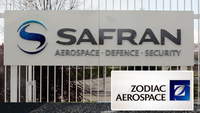 One week after the acquisition of Zodiac Aerospace by Safran, the technology group, employee representatives from both companies met together for the first time in Brussels on 21 February 2018. Safran's EWC members agreed to cooperate with works councils of Zodiac Aerospace from France, Germany, Czechia and the Netherlands. Since Zodiac did not yet have a European works council, these sites are now to be integrated into the existing Safran EWC.
One week after the acquisition of Zodiac Aerospace by Safran, the technology group, employee representatives from both companies met together for the first time in Brussels on 21 February 2018. Safran's EWC members agreed to cooperate with works councils of Zodiac Aerospace from France, Germany, Czechia and the Netherlands. Since Zodiac did not yet have a European works council, these sites are now to be integrated into the existing Safran EWC.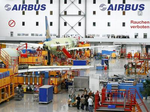 The SE works council of Airbus group met in Toulouse on 7 March 2018, where it was announced that there would be cutbacks in the production of the A380, its large-capacity aircraft, and the military transport aircraft, the A400M. As a consequence, there are up to 3,700 jobs at risk including 1,900 alone in Germany (Bremen and Augsburg). The Spanish plant in Sevilla and Filton in England are also affected. The emphasis will be on the relocation of employees, not on layoffs. In 2017 Airbus was able to nearly triple its annual profits and is breaking one delivery record after another.
The SE works council of Airbus group met in Toulouse on 7 March 2018, where it was announced that there would be cutbacks in the production of the A380, its large-capacity aircraft, and the military transport aircraft, the A400M. As a consequence, there are up to 3,700 jobs at risk including 1,900 alone in Germany (Bremen and Augsburg). The Spanish plant in Sevilla and Filton in England are also affected. The emphasis will be on the relocation of employees, not on layoffs. In 2017 Airbus was able to nearly triple its annual profits and is breaking one delivery record after another. On 12 February 2018, the Central Arbitration Committee (CAC) in London ruled on a complaint filed by the European works council of Oracle. In March 2017, the US software company's central management had informed the EWC that due to Cloud Computing it had planned to transfer business with a loss of 380 jobs by means of a five-page PowerPoint presentation given in a 50-minute-long teleconference. In management's opinion this had completed the Information and Consultation procedure with the EWC.
On 12 February 2018, the Central Arbitration Committee (CAC) in London ruled on a complaint filed by the European works council of Oracle. In March 2017, the US software company's central management had informed the EWC that due to Cloud Computing it had planned to transfer business with a loss of 380 jobs by means of a five-page PowerPoint presentation given in a 50-minute-long teleconference. In management's opinion this had completed the Information and Consultation procedure with the EWC.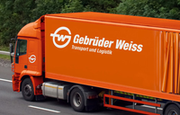 A EWC agreement was signed on 4 October 2017 at the headquarters of the Weiss Brothers group in Lauterach (Vorarlberg). This family business founded in 1823 has 6,500 employees and has a particularly strong presence in Central and Eastern Europe. All countries with 150 employees or more have one seat on the future EWC. Since the agreement covers only the European single market, Switzerland is not represented.
A EWC agreement was signed on 4 October 2017 at the headquarters of the Weiss Brothers group in Lauterach (Vorarlberg). This family business founded in 1823 has 6,500 employees and has a particularly strong presence in Central and Eastern Europe. All countries with 150 employees or more have one seat on the future EWC. Since the agreement covers only the European single market, Switzerland is not represented.
 A EWC agreement was concluded on 27 November 2017 for the 4,000 employees at British Steel. The group has its headquarters in Scunthorpe in the northeast of England, the United Kingdom's most important center for steel production. The company under the traditional name of British Steel has only existed since June 2016. At that time, the Indian Tata group sold a part of its steel production to a British investment company (see
A EWC agreement was concluded on 27 November 2017 for the 4,000 employees at British Steel. The group has its headquarters in Scunthorpe in the northeast of England, the United Kingdom's most important center for steel production. The company under the traditional name of British Steel has only existed since June 2016. At that time, the Indian Tata group sold a part of its steel production to a British investment company (see  A new EWC agreement for Johnson & Johnson was signed on 20 December 2017 for the next five years at their European headquarters in Diegem (near Brussels). The European works council has existed since 1998 and operates under Belgian jurisdiction. It covers all EU countries as well as Norway and Switzerland. The employer is the chairperson and a select committee is made up of five employee representatives with an elected secretary.
A new EWC agreement for Johnson & Johnson was signed on 20 December 2017 for the next five years at their European headquarters in Diegem (near Brussels). The European works council has existed since 1998 and operates under Belgian jurisdiction. It covers all EU countries as well as Norway and Switzerland. The employer is the chairperson and a select committee is made up of five employee representatives with an elected secretary. On 7 February 2018 a revised EWC agreement for Cargill was signed which was elaborated by a Special Negotiating Body during the full legal period of three years. Originally Cargill had already established a EWC on a "voluntary" basis back in 1996. As previously it falls under British jurisdiction and from now on, fully under the new EU Directive. The agreement will remain in force after the Brexit. Cargill is a family owned company and does business in grain and animal feeds.
On 7 February 2018 a revised EWC agreement for Cargill was signed which was elaborated by a Special Negotiating Body during the full legal period of three years. Originally Cargill had already established a EWC on a "voluntary" basis back in 1996. As previously it falls under British jurisdiction and from now on, fully under the new EU Directive. The agreement will remain in force after the Brexit. Cargill is a family owned company and does business in grain and animal feeds.
 On 1 June 2017, central management and the EWC of Vinci renewed an agreement with the goal of "zero accidents" which was first concluded in 2003. The construction group based in Rueil-Malmaison (near Paris) is seeking to inform all local employee representatives throughout Europe on this topic in a transparent manner and to investigate suggestions for improving working conditions and for the prevention of industrial accidents and occupational hazards. The most important points in the declaration are: risk assessment, protective equipment, organization of workflow, awareness and safety training. The EWC steering committee is to receive information from all 18 European countries on industrial accidents, work-related traffic accidents and occupational illness. 50 EWC representatives represent 100,000 employees in France and another 50,000 in other countries. The EWC agreement was last revised in 2010 following a merger (see
On 1 June 2017, central management and the EWC of Vinci renewed an agreement with the goal of "zero accidents" which was first concluded in 2003. The construction group based in Rueil-Malmaison (near Paris) is seeking to inform all local employee representatives throughout Europe on this topic in a transparent manner and to investigate suggestions for improving working conditions and for the prevention of industrial accidents and occupational hazards. The most important points in the declaration are: risk assessment, protective equipment, organization of workflow, awareness and safety training. The EWC steering committee is to receive information from all 18 European countries on industrial accidents, work-related traffic accidents and occupational illness. 50 EWC representatives represent 100,000 employees in France and another 50,000 in other countries. The EWC agreement was last revised in 2010 following a merger (see  The EWC and central management of UniCredit signed a joint declaration on work life balance on 28 November 2017 in Milan. It defines six basic principles, including equal opportunities and non-discrimination. In the five following chapters it goes on to describe the transformation of the working world and the consequences for human resources policy at UniCredit: Digitilization, temporal and locational flexibility, personal time management ("work smarter, not harder"), well-being and cultural change. All employees should "leave work at work" and create themselves technology-free zones, including a responsible use of email. Compliance with the declaration is monitored by the European works council together with central management. This is already the fourth agreement for UniCredit, who most recently concluded a declaration on responsible sales in May 2015 (see
The EWC and central management of UniCredit signed a joint declaration on work life balance on 28 November 2017 in Milan. It defines six basic principles, including equal opportunities and non-discrimination. In the five following chapters it goes on to describe the transformation of the working world and the consequences for human resources policy at UniCredit: Digitilization, temporal and locational flexibility, personal time management ("work smarter, not harder"), well-being and cultural change. All employees should "leave work at work" and create themselves technology-free zones, including a responsible use of email. Compliance with the declaration is monitored by the European works council together with central management. This is already the fourth agreement for UniCredit, who most recently concluded a declaration on responsible sales in May 2015 (see  The trade union alliance for Liberty Global held a meeting on the Caribbean island of Grenada, on 22 and 23 November 2017. The company is present in numerous countries in the Caribbean and Latin America as a result of the acquisition of the British company Cable & Wireless Communications, in May 2016. Liberty Global is the world's largest cable operator outside the US. The union alliance had criticized the degradation of working conditions and outsourcing after the acquisition. Liberty Global also has a European works council in place since June 2017 (see
The trade union alliance for Liberty Global held a meeting on the Caribbean island of Grenada, on 22 and 23 November 2017. The company is present in numerous countries in the Caribbean and Latin America as a result of the acquisition of the British company Cable & Wireless Communications, in May 2016. Liberty Global is the world's largest cable operator outside the US. The union alliance had criticized the degradation of working conditions and outsourcing after the acquisition. Liberty Global also has a European works council in place since June 2017 (see  On 19 January 2018, central management of Stora Enso signed an international framework agreement (IFA) in Geneva with three trade union confederations on a worldwide level. It guarantees the respect for human rights, fundamental trade union rights and freedom of association and aims at combating all forms of discrimination and improving occupational health and safety. These principles are also to apply to Stora Enso's suppliers. The signees meet every two years to monitor compliance also in collaboration with the European works council. By disputes on the interpretation of the agreement, which covers 25,000 employees in 35 countries, both sides designate a mediator.
On 19 January 2018, central management of Stora Enso signed an international framework agreement (IFA) in Geneva with three trade union confederations on a worldwide level. It guarantees the respect for human rights, fundamental trade union rights and freedom of association and aims at combating all forms of discrimination and improving occupational health and safety. These principles are also to apply to Stora Enso's suppliers. The signees meet every two years to monitor compliance also in collaboration with the European works council. By disputes on the interpretation of the agreement, which covers 25,000 employees in 35 countries, both sides designate a mediator. Trade union representatives from North America, Spain and the United Kingdom met in Madrid on 19 February 2018 to discuss the situation at National Express. The British group operates numerous municipal bus lines in the USA and is present in 33 Federal States and in Canada with its school bus services. The unions claim that the trade union-hostile attitude of management in the USA contradicts with the principles that the company has itself propagated in Europe. National express has up to now, not yet established a European Works council. In Germany the group operates a regional rail-service in North Rhine-Westphalia.
Trade union representatives from North America, Spain and the United Kingdom met in Madrid on 19 February 2018 to discuss the situation at National Express. The British group operates numerous municipal bus lines in the USA and is present in 33 Federal States and in Canada with its school bus services. The unions claim that the trade union-hostile attitude of management in the USA contradicts with the principles that the company has itself propagated in Europe. National express has up to now, not yet established a European Works council. In Germany the group operates a regional rail-service in North Rhine-Westphalia.
 Demographic change in aircraft manufacturing
Demographic change in aircraft manufacturing
 British perspective on tomorrow's working world
British perspective on tomorrow's working world Legal reference book on EWC law
Legal reference book on EWC law This thesis was published in January 2018 and gives a detailed analysis of the emergence of the EWC Directive in 1994 and its revision in 2009. In particular, it examines the transposition of the new legal situation of 2009 in Germany and in France. All the changes made to the two national laws are compared with one another point for point. A separate chapter discusses how the EWC may enforce its participation rights if necessary in court. In addition the landmark court judgement in the French case of Gaz de France (see
This thesis was published in January 2018 and gives a detailed analysis of the emergence of the EWC Directive in 1994 and its revision in 2009. In particular, it examines the transposition of the new legal situation of 2009 in Germany and in France. All the changes made to the two national laws are compared with one another point for point. A separate chapter discusses how the EWC may enforce its participation rights if necessary in court. In addition the landmark court judgement in the French case of Gaz de France (see  Everything under control? Labour legislation in the digital age
Everything under control? Labour legislation in the digital age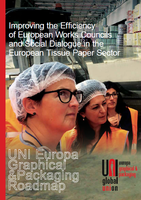 n February 2018, the European trade union federation, UNI Graphical & Packaging published an industry specific study for the tissue paper sector, which is characterized by a high market concentration. Six multinationals alone control 70 to 80% of the European market. During three conferences, the economic climate, working conditions in the different countries and companies as well as the social effects of restructuring were examined. There was a special emphasis put on occupational safety. The project sponsored by the European Commission developed into a roadmap which should lead to the reinforcement of European works councils and is documented in this brochure. The Italian family business Sofidel for example is still refusing to take measures for the establishment of a European works council (see
n February 2018, the European trade union federation, UNI Graphical & Packaging published an industry specific study for the tissue paper sector, which is characterized by a high market concentration. Six multinationals alone control 70 to 80% of the European market. During three conferences, the economic climate, working conditions in the different countries and companies as well as the social effects of restructuring were examined. There was a special emphasis put on occupational safety. The project sponsored by the European Commission developed into a roadmap which should lead to the reinforcement of European works councils and is documented in this brochure. The Italian family business Sofidel for example is still refusing to take measures for the establishment of a European works council (see 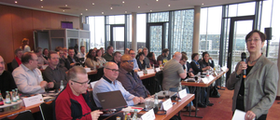 The EWC Academy's annual conference on current developments in the sphere of EWCs and SEs was held for the tenth time on 29 and 30 January 2018 in Hamburg. This time the emphasis was on reforms in France, where the collective bargaining system and the works council structures are currently being completely modified. Study results of management's opinion of the EWC were also presented.
The EWC Academy's annual conference on current developments in the sphere of EWCs and SEs was held for the tenth time on 29 and 30 January 2018 in Hamburg. This time the emphasis was on reforms in France, where the collective bargaining system and the works council structures are currently being completely modified. Study results of management's opinion of the EWC were also presented. EWC constitutional meeting following merger
EWC constitutional meeting following merger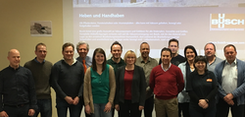 Training for new SE works council
Training for new SE works council The rules for the processing of personal data in the EU are to be unified in 2018. The General Data Protection Regulation will replace all previous national legislations as of 25 May 2018 including the (German) Federal Law on Data Protection which will then no longer apply. A seminar will be held on the subject from 2 to 4 July 2018 in Mainz (near Frankfurt) in English and German. The evening program will include a visit to the Kupferbergterrasse, the world's deepest sparkling wine cellar.
The rules for the processing of personal data in the EU are to be unified in 2018. The General Data Protection Regulation will replace all previous national legislations as of 25 May 2018 including the (German) Federal Law on Data Protection which will then no longer apply. A seminar will be held on the subject from 2 to 4 July 2018 in Mainz (near Frankfurt) in English and German. The evening program will include a visit to the Kupferbergterrasse, the world's deepest sparkling wine cellar. Our annual introduction seminar for the members of European and SE works councils is being organized from 28 to 31 August 2018 in Montabaur Castle not far from the high-speed railway station half-way between Frankfurt and Cologne. For the first time it will not only be given in German but also in English. The following topics (Level 1 and 2) are offered in parallel:
Our annual introduction seminar for the members of European and SE works councils is being organized from 28 to 31 August 2018 in Montabaur Castle not far from the high-speed railway station half-way between Frankfurt and Cologne. For the first time it will not only be given in German but also in English. The following topics (Level 1 and 2) are offered in parallel: A conference for members of European works councils is being held on 12 September 2018 in Rome (including simultaneous interpretation English-German-Italian). It is organized jointly by the Italian Institute SindNova and the EWC Academy. German speaking employee representatives may participate in a fringe seminar on 11 and 13 September 2018 to gain knowledge on Italian industrial relations and on the new government's plans for labour legislation.
A conference for members of European works councils is being held on 12 September 2018 in Rome (including simultaneous interpretation English-German-Italian). It is organized jointly by the Italian Institute SindNova and the EWC Academy. German speaking employee representatives may participate in a fringe seminar on 11 and 13 September 2018 to gain knowledge on Italian industrial relations and on the new government's plans for labour legislation.
 Introduction to European labour legislation in Brussels
Introduction to European labour legislation in Brussels